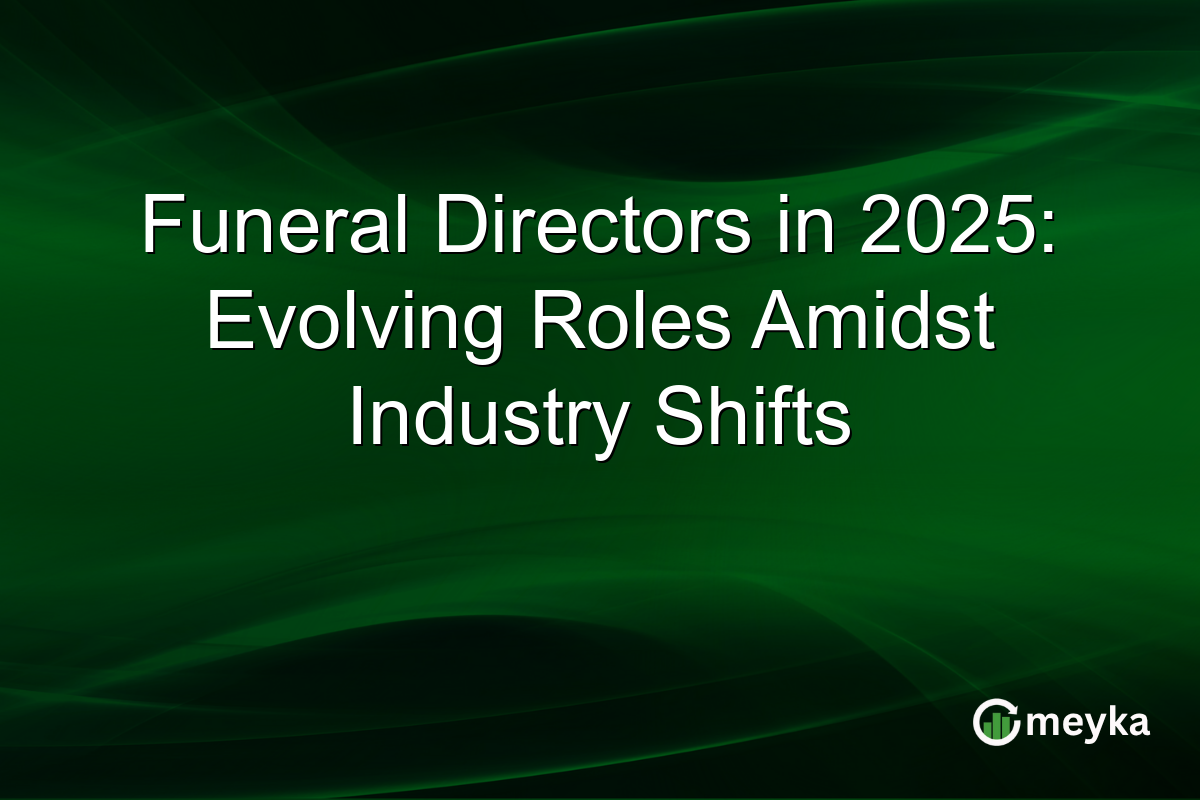Funeral Directors in 2025: Evolving Roles Amidst Industry Shifts
The role of funeral directors is rapidly evolving in 2025, driven by shifting consumer preferences and technological advancements. With a staggering 1,000% rise in interest over the past years, funeral directors are now more essential than ever. Adaptability is critical, as the industry faces demands for modernized services and personalized end-of-life experiences.
Continue Reading on Meyka
This article is available in full on our main platform. Get access to complete analysis, stock insights, and more.
Read Full Article →





